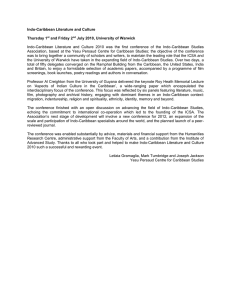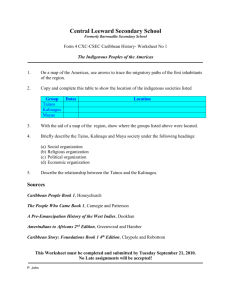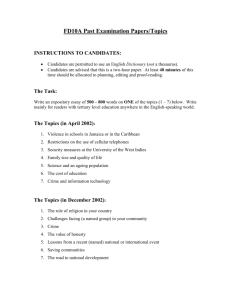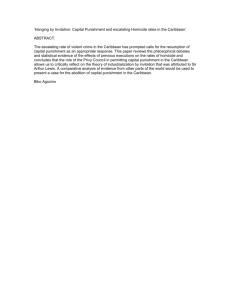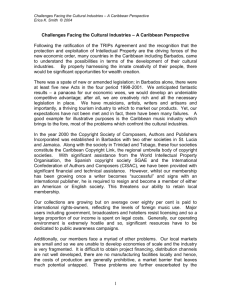cape caribbean studies review of past papers cape
advertisement
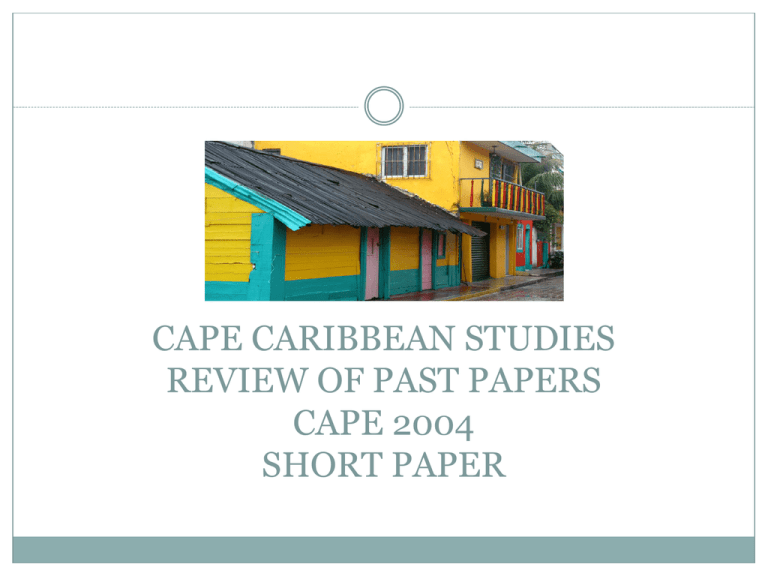
CAPE CARIBBEAN STUDIES REVIEW OF PAST PAPERS CAPE 2004 SHORT PAPER QUESTION 1 State One meaning of the term ‘culture’, supporting your answer with an example. RESPONSE Culture refers to the ways of life of a people e.g. forms of dress. QUESTION 2 Describe TWO ways in which Rastafarianism has had an impact on cultures outside of the Caribbean region. QUESTION 3 Explain what is meant by ‘social stratification’. RESPONSE This refers to the ranking of different groups in the society according to criteria that are valued. QUESTION 4 Explain Two ways in which education influences social stratification. RESPONSE Individuals who have minimal education are usually confined to manual or working class jobs. With educational qualifications one can access elitist social clubs and professional circles. Highly qualified and learned individuals can become members of the intelligentsia. QUESTION 5 Explain the meaning of ‘cultural pluralism’ in the context of Caribbean societies. QUESTION 6 Describe ONE negative and ONE positive impact of emigration on Caribbean countries. RESPONSE Negative impact: Emigration results in a brain drain from Caribbean countries The country very often suffers from the loss of many professionals and many skilled personnel to the big countries The country also loses investment after training a number of persons who leave at the end of training (for example nurses and teachers) RESPONSE Positive Impact: The country benefits economically through the remittance of funds to the home country by the migrants The festivals staged by the new or newly adopted countries aid the Caribbean as Caribbean artistes often have to be imported for these festivals. Less population pressure in the Caribbean, for example, less competition for jobs and other resources. Recognition of Caribbean people and their potential through the achievements of the Caribbean diaspora. QUESTION 7 Explain what is meant by ‘indentureship’ in the context of the Caribbean experience. RESPONSE This refers to the contracting of mainly East Indians and Chinese to work on sugar plantations in the period after emancipation. QUESTION 8 State TWO ways in which indentureship differed from slavery in the Caribbean. RESPONSE Indentureship involved East Indians and Chinese while slavery involved West Africans Indentured labourers were contracted to work for a time and paid a wage. African slaves were regarded as chattel. Indentureship was confined to certain territories such as Trinidad and Guyana whilst slavery was widespread. While indentured labourers were treated harshly, they were not systematically beaten, tortured and murdered as were Africans. QUESTION
